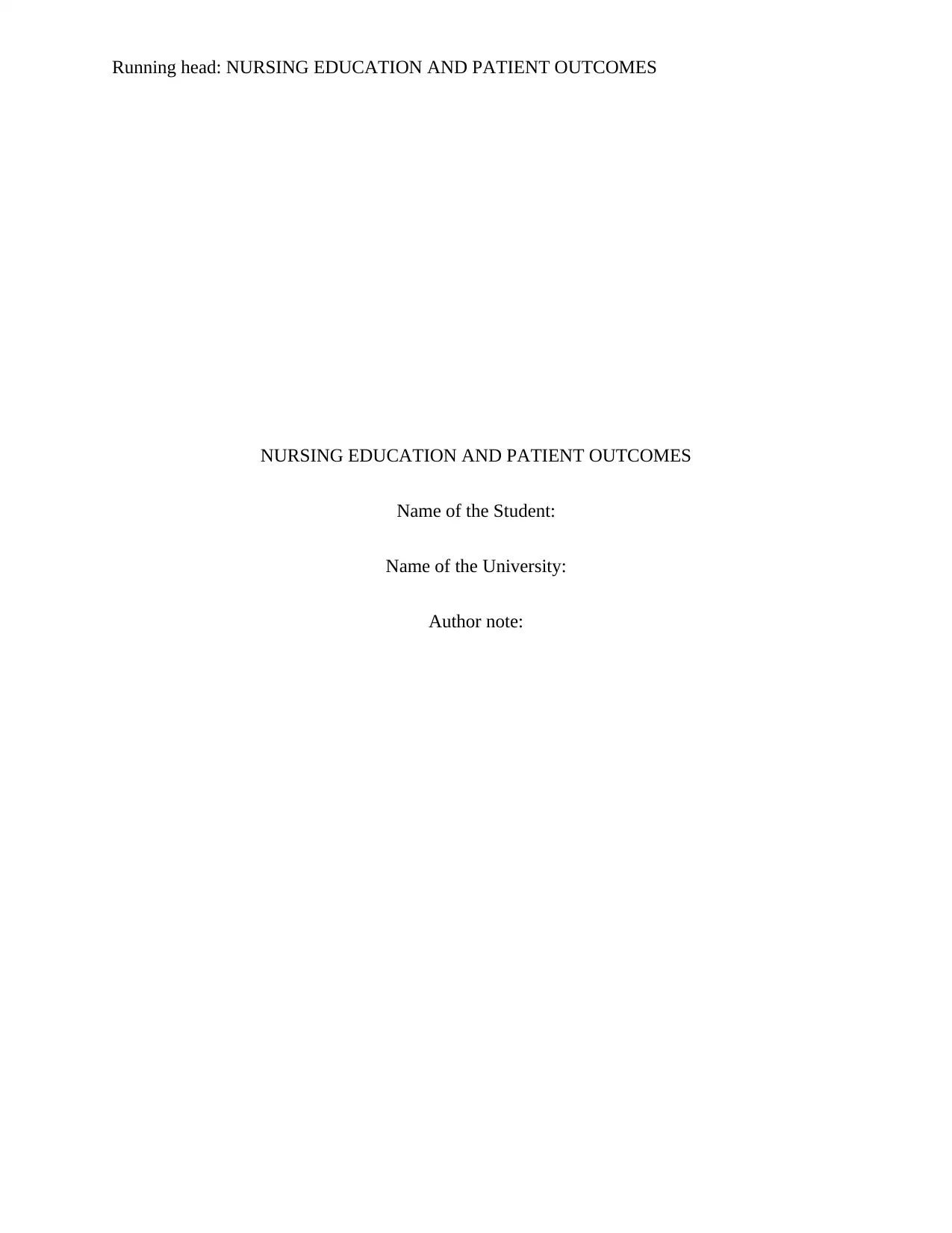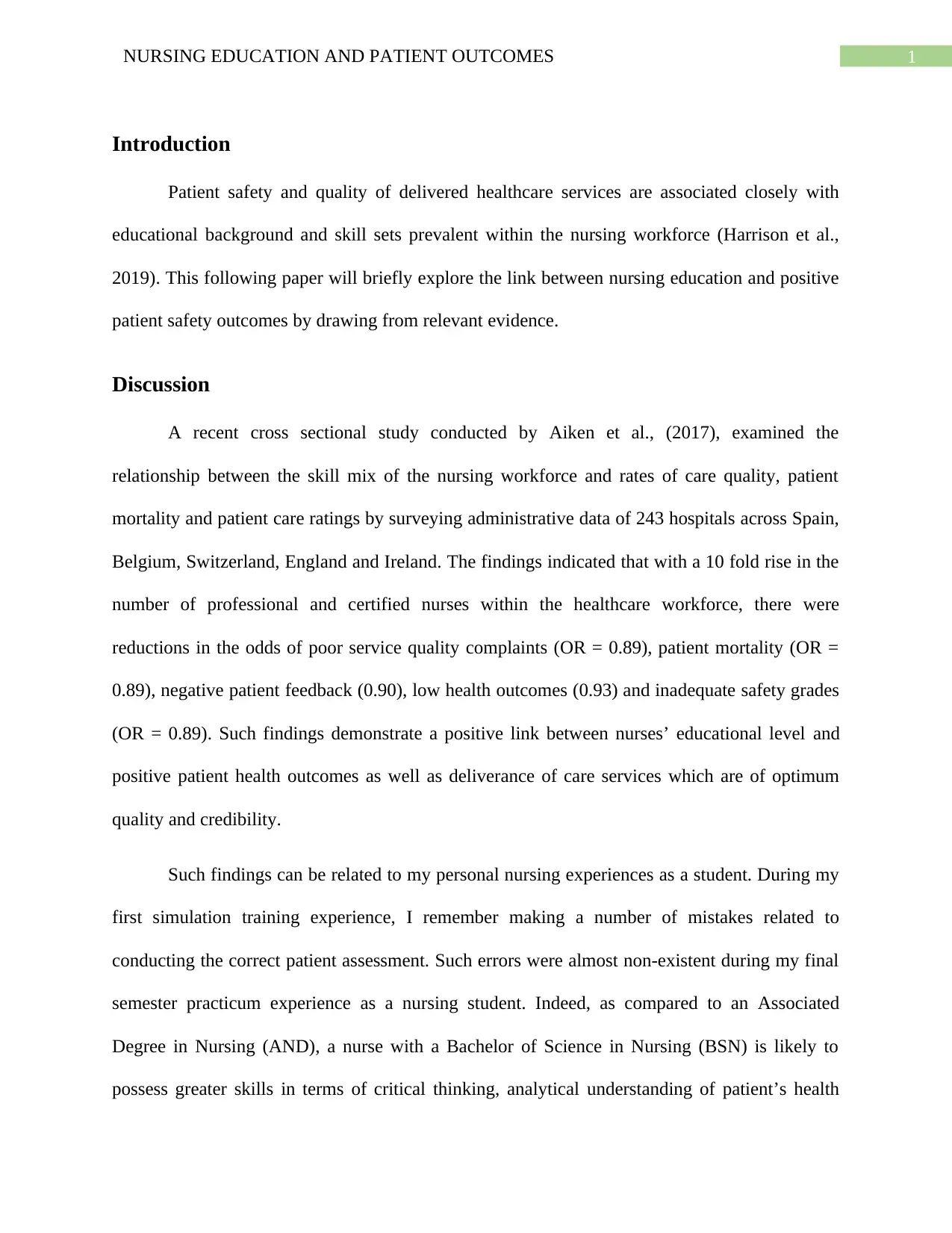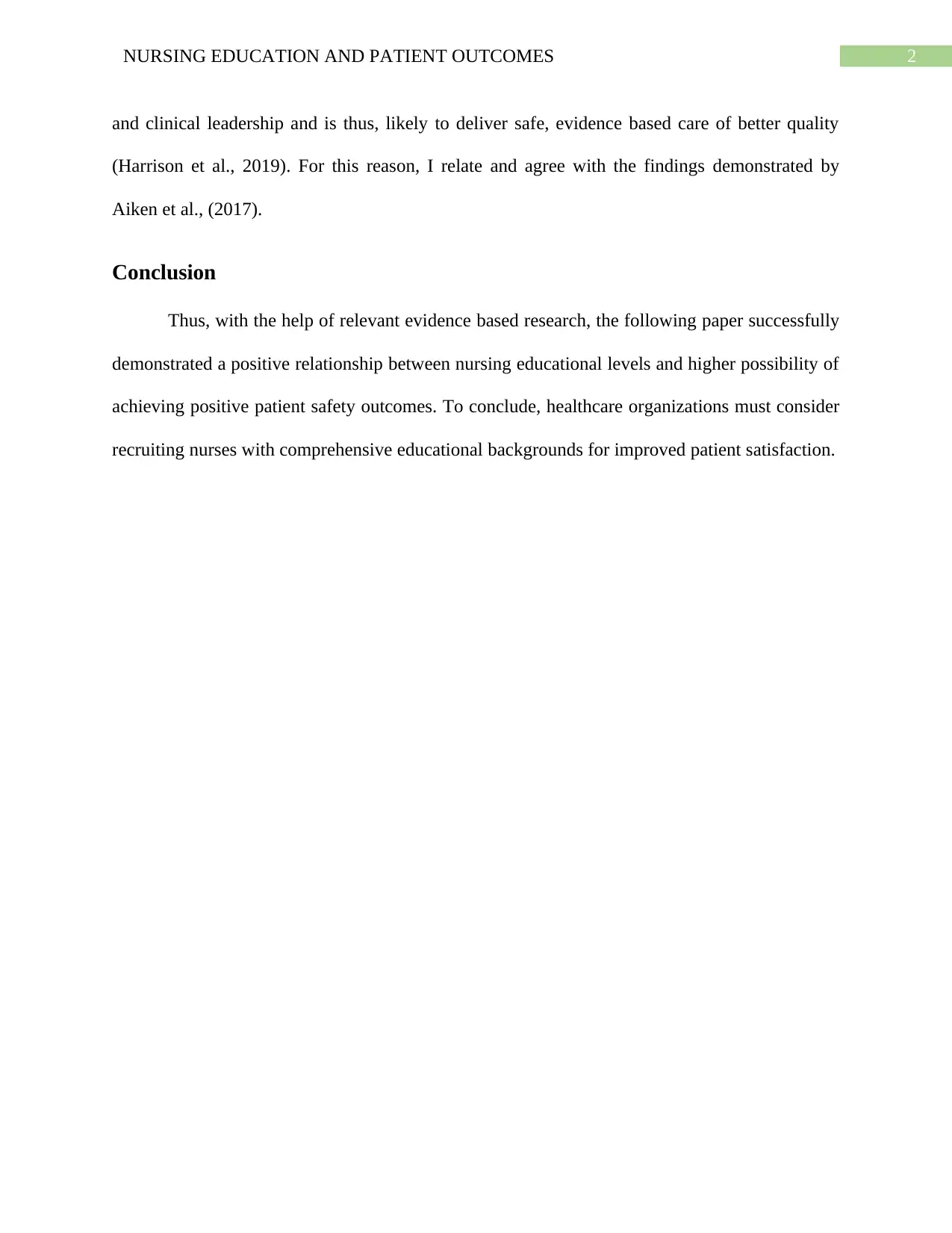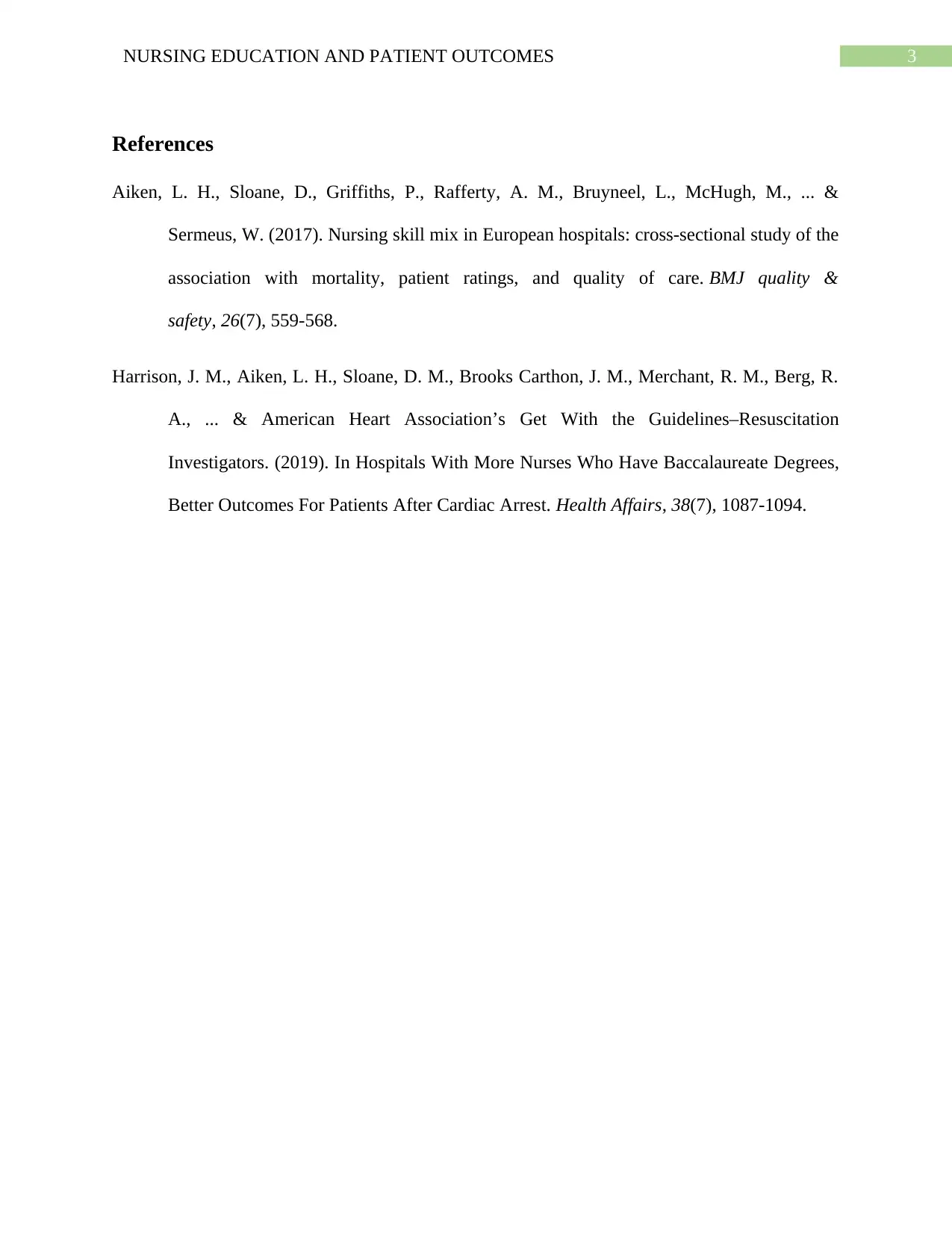Analysis of Nursing Education's Influence on Patient Safety Outcomes
VerifiedAdded on 2022/08/22
|4
|592
|17
Report
AI Summary
This report analyzes the impact of nursing education on patient outcomes, drawing on a cross-sectional study by Aiken et al. (2017) which examined the relationship between nursing skill mix and care quality, patient mortality, and patient care ratings across multiple countries. The report highlights the positive correlation between a higher proportion of educated nurses, particularly those with Bachelor of Science in Nursing (BSN) degrees, and improved patient safety, reduced mortality rates, and higher quality of care. The report also includes a personal reflection on the author's nursing education and its impact on clinical skills, emphasizing the importance of comprehensive educational backgrounds for nurses in enhancing patient satisfaction and healthcare outcomes. The report concludes by emphasizing the need for healthcare organizations to prioritize recruiting nurses with advanced educational qualifications to ensure better patient care.
1 out of 4











![[object Object]](/_next/static/media/star-bottom.7253800d.svg)